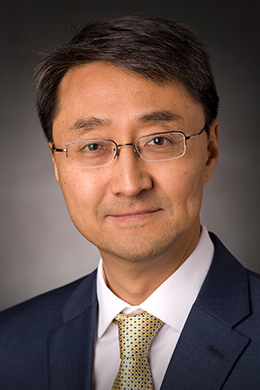Seong H. Kim
 Why did you choose Northwestern?
Why did you choose Northwestern?
It was one of the best schools that I applied for my PhD study and the only school that gave admission to me. So, in that sense, Northwestern graciously gave me the opportunity, rather than me choosing it.
How would you describe your research and/or work to a non-academic audience? What was it then and/or what is it now?
My graduate study was a mechanistic study of chemical reactions occurring on single crystal surfaces related to catalysis and photochemistry. I learned a great deal of surface science and characterization fundamentals. My current research at Penn State encompasses tribology (a subject perhaps more known in mechanical engineering), silicate glass (usually considered in materials science disciplines), and plant cell walls (also called lignocellulose biomass by engineers). The crux of these seemingly disparate programs is the fundamental understanding of surface science and characterization principles and the application of those principles to research fields that need such expertise, even though they may be outside the comfort zone of his past education and training.
Tell us who or what inspired your research and/or work.
I'd say it would be the intellectual thirst to understand how and why things work in that specific way. Quite often, I did not feel comfortable working on something that I did not know well. For that reason, my progress was usually slow initially, but I found that learning the basics first by myself allowed me to go farther eventually.
What are you most proud of in your career to date?
I came out of my comfort zone (a surface science study with ultra-high vacuum instruments) and worked in new fields where my expertise is needed even though I have not studied those before.
Tell us about a current achievement or something you're working on that excites you.
Working in a field where I was nobody, I had questioned various assumptions that others have taken for granted in that field, proposed new alternative hypotheses, listened to criticisms, and improved the proposed theories. Through these efforts, my students and I have established fundamental knowledge in molecular tribology, glass surface science, and biological materials, which is critically needed for engineering applications.
What advice would you give your younger self or someone considering a similar path?
Learn how to solve math problems with advanced math software such as Mathematica or MatLab.